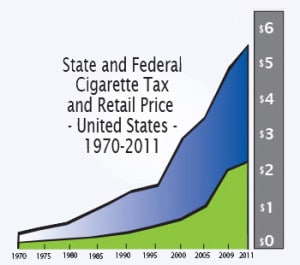Carbon tax stirrings could boost oil prices
Peak oil is dead, they say.
Three events say “maybe not.”
Just yesterday, it seems, the cost of oil and gas dropped by half. Almost overnight the world had learned to frack. President Obama started talking about “our 100-year supply of natural gas.” Warnings about the upward pressures on petroleum prices were rescinded.
But will energy prices soon join the other climate-driven costs we need to navigate – thanks to a tax on carbon?
We’ve imposed a similar tax before, on tobacco. People stopped smoking. Cancer deaths dropped. So did lung, heart, and pregnancy healthcare costs. We used the tax to fund children’s health coverage.
Could we raise the price of oil and gas with a carbon tax and get similar benefits? There are straws in the wind.
1. Democrats Sheldon Whitehouse and Brian Schatz introduced a carbon tax bill last winter in the Senate. They think conditions have changed enough to give it new appeal to Republicans. They’re even pitching the idea this month to the conservative American Enterprise Institute.
2. Conservative think tanks, including the Energy and Enterprise Initiative and the American Action Forum have endorsed a carbon tax.
3. BP, Eni, Royal Dutch Shell, Statoil and Total last month asked the UN Framework Convention on Climate Change to “introduce carbon pricing systems where they do not yet exist at the national or regional levels.” Whoa!
Who knew taxing carbon might begin to appeal to conservatives? It should. And it will help make our grandchildren’s world safer. In our lifetimes, however, the tax means we should start climate-proofing our personal budgets against yet another rising cost.




